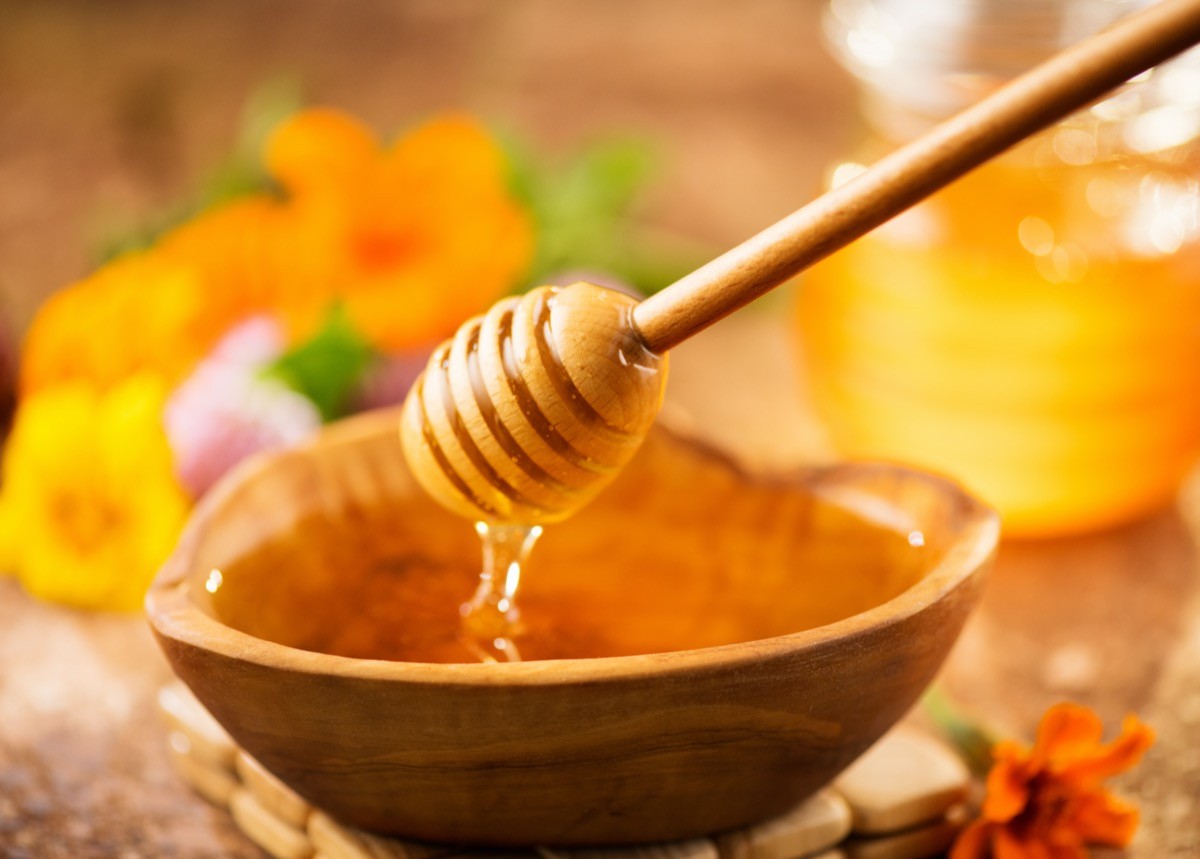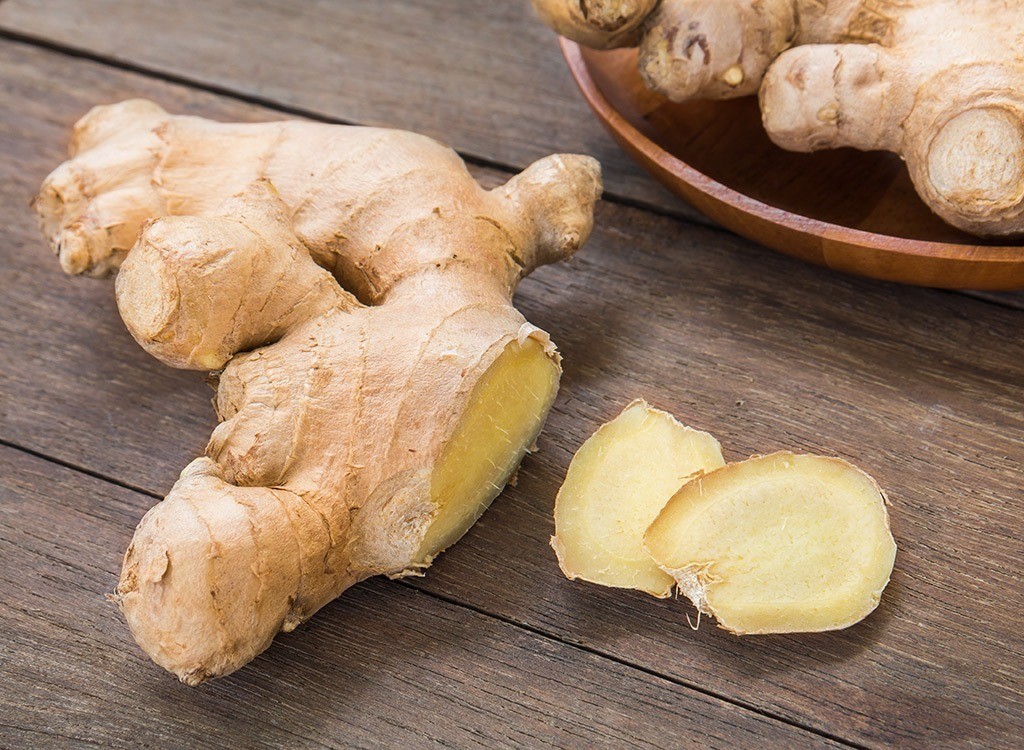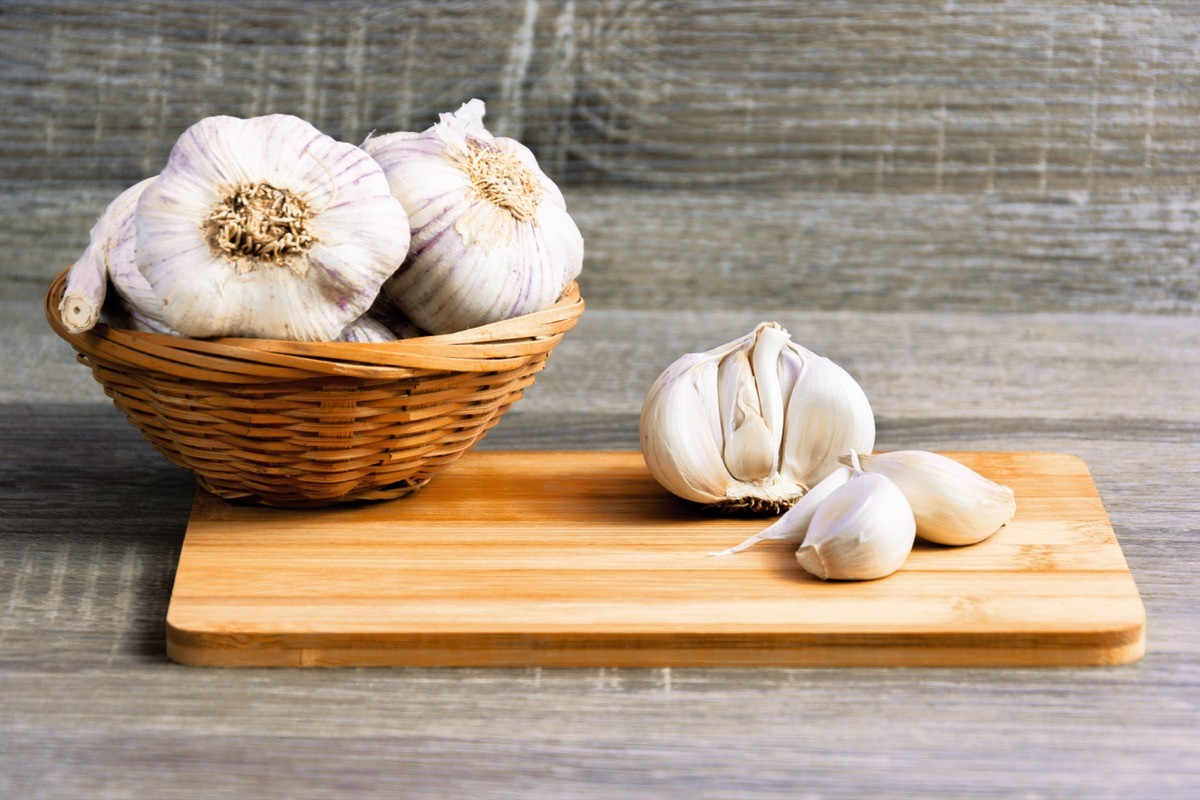Doctors Say These 3 Foods Can Help Cure a Sore Throat

There’s no worse feeling than waking up with a tingle in your throat. If your tonsils look swollen and red, and your mouth feels dry or scratchy, then it’s game over. You officially have a sore throat. But before you go raiding your local drugstore’s cough medicine aisle, you ought to know there are natural ways to prevent a sore throat from turning into a full-blown illness. In a new TikTok video, naturopathic doctor Janine Bowring, ND, shares three natural remedies to help cure a sore throat. Spoiler alert: You probably already have a few of these food items on hand.
RELATED: 7 Best Supplements to Boost Your Immune System This Cold and Flu Season.
1. Honey

Did you know that a spoonful of honey can be just as effective as cough syrup? According to family medicine physician Elizabeth Rainbolt, MD, honey has been “shown to work as well as some cough suppressant medications,” and health experts consider it to be “a nice alternative.”
“Think of honey as a first line of defense for those over 1 year old,” Rainbolt told Cleveland Clinic.
Honey can ease dryness and inflammation if your throat feels scratchy or it hurts to swallow. Rainbolt also pointed to a 2014 study that suggests “honey may reduce secretion. So, you can use honey for cough symptoms as well, whether it’s a wet or dry cough.”
While any type of honey will do, Bowring recommends local and unpasteurized honey. “This is a natural antibiotic,” she told followers. “It always works best.”
2. Ginger

Sore throats caused by bacterial infections (like strep throat) can be soothed with fresh ginger—but the keyword here is “fresh,” as dried ginger doesn’t contain the same benefits.
“[Its] active component is gingerol, which is a relative of the capsaicin found in chili peppers, and that’s why it gives you that bit of a burn sensation, especially if you got bad bacteria in your throat and it is helping to kill that bacteria as well,” explained Bowring.
Studies show that ginger root has anti-inflammatory and antioxidant properties. A 2015 report found that ginger can soothe a sore throat, reduce congestion, and decrease inflammation. It’s safe to eat ginger root raw, but you can also add it to soups, smoothies, or stir fry. Ginger also pairs well with honey, especially in teas or hot water.
RELATED: 111-Year-Old Woman Credits This 3-Ingredient Drink for Her Longevity: “I Never Go to the Doctor.”
3. Garlic

A sore throat is a clear indication that your immune system has been jeopardized. Try adding raw garlic, a “natural antibiotic,” to your diet to help boost recovery, advised Bowring. The spice can relieve inflammation and improve immunity, per Cleveland Clinic.
“You’ll get the most benefit from raw garlic,” dietician Laura Jeffers, MEd, RD, LD, told the health organization. “But if you choose to cook it, don’t heat it above 140 degrees Fahrenheit (60 degrees Celsius). Higher temperatures kill the allicin, so add garlic to your recipes when you’re almost done cooking.”
Allicin is an organic compound found in garlic and other alliums that’s responsible for its distinct odor. According to a 2019 review paper, allicin has “antimicrobial potential, showing both antibacterial and antifungal activities.”